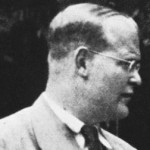Note: In Slow Church, Chris and I describe gratitude as the vital bridge that connects abundance and generosity. As a spiritual discipline–one that requires time and intentionality, both on our own and in community–gratitude is how we practice recognizing the abundant gifts God has given us. It’s how we praise God for those gifts. And it is the energy that compels us to want to share those gifts. This is the second of a three-part series on how gratitude can transform our communities. (Here’s a link to yesterday’s post.) How do you practice gratitude at home, at church, and in your neighborhood?
Gratitude requires practice, both in our personal lives and in the shared life of our church communities; it must be cultivated.
Maybe you start by making a personal commitment to begin and end each day with words of praise. Or resolve to be more vigilant in saying thank you to people in your community who have been a blessing. Maybe you institute a new family tradition, as my wife and I did, to start each meal by recounting three specific things you are grateful for in that moment. Or maybe some folks in your house church or Sunday school class decide to start keeping and sharing entries from a gratitude journal. While gratitude will never be so automatic that we can stop being intentional about it, it won’t take long before we start seeing the world with new eyes. All around us are traces of the God’s blessings. Gratitude reveals just how porous the line is between the material and the spiritual.
Cultivating a gift perspective in our church communities makes us alive to, receptive of, and thankful for God’s abundant provision, which is daily discovered in even the humblest acts of grace. “Be thankful for the smallest blessing, and you will deserve to receive greater,” Thomas a Kempis wrote in his 15th century devotional classic, The Imitation of Christ. “Value the least gifts no less than the greatest, and simple graces as especial favors. If you remember the dignity of the Giver, no gift will seem small or mean, for nothing can be valueless that is given by the most high God.”
Giving thanks for the small gift can be a catalyst God uses to do something even more dramatic. There’s an example of this in the story of the Feeding of the Four Thousand in Mark 8. Not long after he fed a crowd of five thousand with only five loaves of bread and two fish, Jesus found himself surrounded by another huge crowd. They had been following him for three days but had nothing to eat. Jesus pressed his disciples to do something. But the disciples responded by saying, “How can one feed these people with bread here in the desert?”
The disciples’ focus was on what they lacked. Jesus was focused on what they had. He took an inventory of the food at hand, which amounted to seven loaves of bread, and then ordered the crowd to sit down. He gave thanks for the bread and told his disciples to distribute it. Then someone found a few small fish. After blessing the fish, Jesus ordered that these be distributed as well. When everyone had eaten their fill, the leftovers were gathered and they filled seven baskets. Jesus was first thankful for what little they had; only then could the crowd be thankful for the feast.
Like the disciples, we tend to focus more on what we don’t have, what we can’t do, and where we fall short. We often define and appraise our faith communities the same way. What is absent can obscure what is present. This happens when we focus more on needs than assets (more on tomorrow). It is also one of the pitfalls of the “visionary dreamer.” There is a devastating passage about visionary dreamers in Dietrich Bonhoeffer’s Life Together. The visionary dreamer is proud and pretentious. He fashions the ideal of community in his head and then “demands that it be realized by God, by others, and by himself.” Because the visionary dreamer makes the rules, he also sits as judge over God and men. “He acts as if he is the creator of the Christian community, as if his dream binds men together.” When things don’t go according to plan, he calls the effort a failure. Gratitude leaves no room for this kind of visionary dreaming, as Bonhoeffer makes plain:
Because God has already laid the only foundation of our fellowship, because God has bound us together in one body with other Christians in Jesus Christ, long before we entered into common life with them, we enter into that common life not as demanders but as thankful recipients. We thank God for giving us brethren who live by his call, by his forgiveness, and his promise. We do not complain of what God does not give us; we rather thank God for what he does give us daily.
And is not what has been given us enough: brothers, who will go on living with us through sin and need under the blessing of his grace? Is the divine gift of Christian fellowship anything less than this, any day, even the most difficult and distressing day?
Rather than emphasizing what’s not there, the church should focus on what is. The work of the church is, in part, to help people discern their gifts, provide opportunities for people to publicly praise God for them, and support them as they exercise those gifts—“re-gifting” them for God’s glory. Tomorrow we’ll talk about some specific ways churches can do just that.













